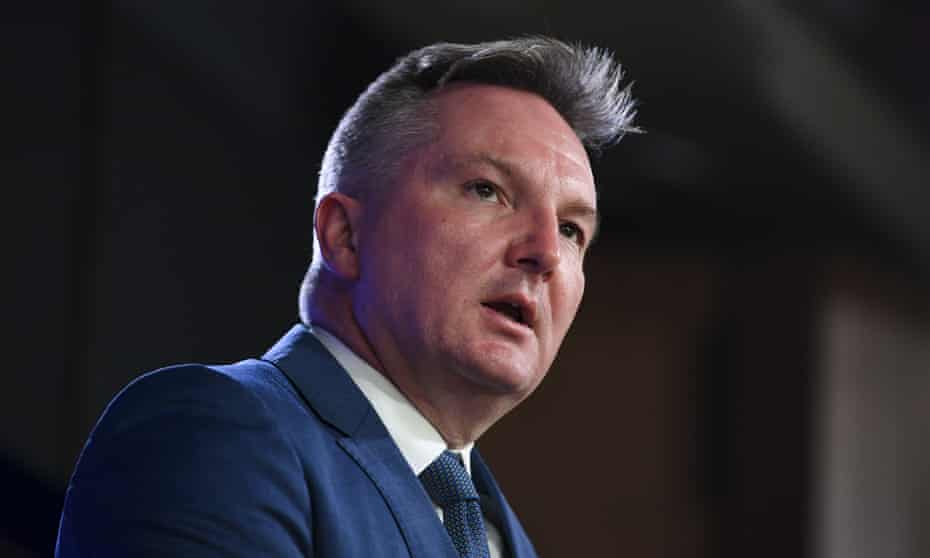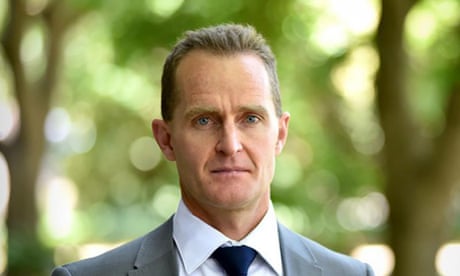Extract from The Guardian
Chris Bowen says Labor wants to ensure system has integrity after whistleblower’s claims.

Fri 25 Mar 2022 12.18 AEDT
Last modified on Fri 25 Mar 2022 12.37 AEDTChris Bowen, the opposition climate change and energy spokesman, said carbon credits were “very important”, would be “increasingly important” and Labor wanted to ensure the system had integrity.
Prof Andrew Macintosh, who spent years working on carbon credit integrity as the head of the government’s emissions reduction assurance committee, this week described the system as a fraud that was hurting the environment and had wasted more than $1bn in taxpayer funding.

Macintosh is an Australian National University environment law professor who has been appointed to several senior roles by the Coalition, including as a royal commissioner examining Australia’s natural disaster response after the Black Summer bushfires.
Bowen said he had already had concerns “for some time” after previous allegations there were integrity issues with carbon credits.
“This report by Prof McIntosh was concerning. Now carbon trading, Australian credit units, are very important and will be increasingly important, including under us, and I support the carbon trading system,” he told the ABC’s Radio National. “But I also want to ensure that they do have integrity.”
He said Labor had already promised, as part of the climate change policy it released in December, it would commission a quick review of the carbon market that would consider integrity and other issues, including how it interacted with efforts to improve biodiversity, if it wins the election expected in May.
“I am not a scientist. I would want independent advice giving me the confidence, and the Australian people the confidence, that the [carbon credit] market is functioning as it should and that is what we would deliver if we do win the election,” Bowen said. “I would welcome [energy and emissions reduction minister] Angus Taylor making a similar commitment.”
The Greens said they had referred Macintosh’s allegations to the national auditor general. The party’s leader, Adam Bandt, called for a “full, independent inquiry”.
“When the former head of the government’s emissions reduction assurance committee reveals that the carbon credits scheme is ‘largely a scam’, we need an open transparent inquiry with powers to get to the bottom of it,” he said.
“This is a critical issue. Both the Morrison government and Labor are claiming to take climate seriously while planning to open up 114 new coal and gas projects, relying on permits and offsets to cover up their duplicity. If carbon credits are fraudulent too, then Australia will definitely blow its climate targets.”
Independent senator Rex Patrick said he planned to move a disallowance motion in parliament next week to block a change proposed by Taylor that would allow projects at landfill sites that capture methane – a potent greenhouse gas released from waste – to run on-site electricity generators to continue to get credits for another five years.
The integrity committee under Macintosh in 2018 found these projects should no longer get credits because they were profitable without them, and the cuts in emissions would have happened anyway.
Patrick said more than $300m of taxpayers’ money was at stake. “It is therefore essential that the Senate carefully looks into the properness of the determination and whether the money is being spent in the most effective manner,” he said.
The carbon credits system is managed by the Clean Energy Regulator, a government agency. It is responsible for designing and regulating carbon credit methods, advising the Emissions Reduction Assurance Committee that oversees the integrity of the methods and buying credits on behalf of the government.
The regulator has rejected Macintosh’s assertions, saying both it and the committee had undertaken considerable work using independent experts to test previous claims made by Macintosh and found no evidence to support them. It said it had “well established and rigorous processes” to address potential conflicts of interest that arose from it both developing carbon credits methods and issuing and buying credits, and that the $4.5bn emissions reduction fund – through which the government buys credits from landholders and businesses – was a “robust offsets scheme with a high degree of integrity”.
Macintosh said problems with the system included a lack of transparency. He called on the regulator to release data not currently in the public domain that it relied on to say the system was working, and said there should be an independent inquiry into the failures of the system with the power to compel people to give evidence.
“If the law was changed I’d be perfectly happy to put that data out,” Parker said.
John Connor, chief executive of the Carbon Market Institute, which represents businesses making commitments to cut emissions, said the organisation took claims about the integrity of the carbon market seriously and would consider Macintosh’s new analysis.
He said methods to create carbon credits were subject to regular reviews so they could be improved. “[The institute] supports continuous improvement in method development and implementation,” he said.
Macintosh said he believed the initial errors in how carbon credits were issued were unintentional, but subsequently attempts had been made to cover up those mistakes. More recently, as demand for credits increased with fossil fuel companies under pressure to show they were addressing the climate crisis, he believed the government had made a conscious decision to prioritise building an abundant supply of cheap offsets over ensuring their integrity.
A spokesperson for Taylor said on Wednesday that Macintosh had reviewed and signed off on methods that he now said lacked integrity.
Macintosh said he attempted to address the problems with carbon credits while on the committee but had limited success, and regretted he had not taken a stronger stance on some issues. He said he had continued to try to persuade the regulator and other officials of the need to act in the two years since he left the committee before deciding to go public.
No comments:
Post a Comment